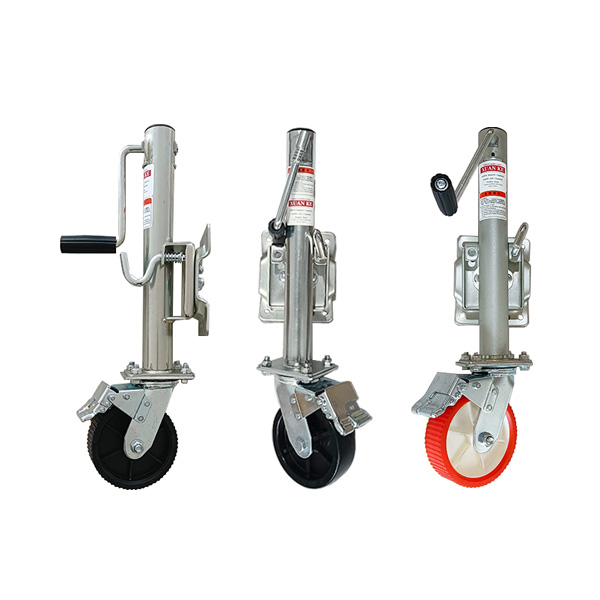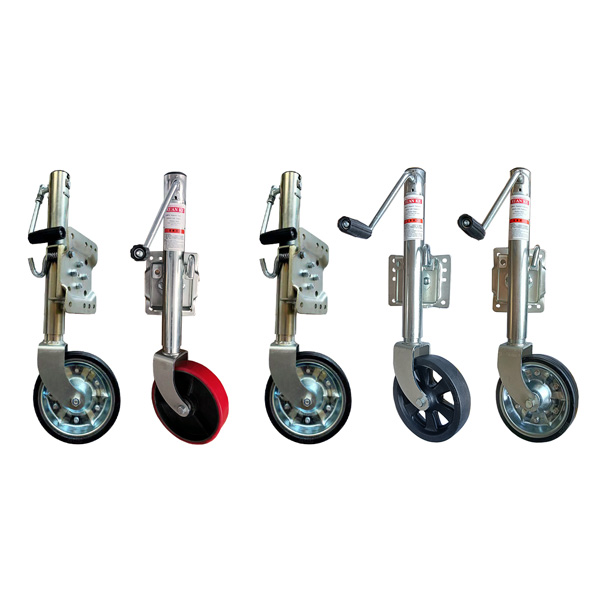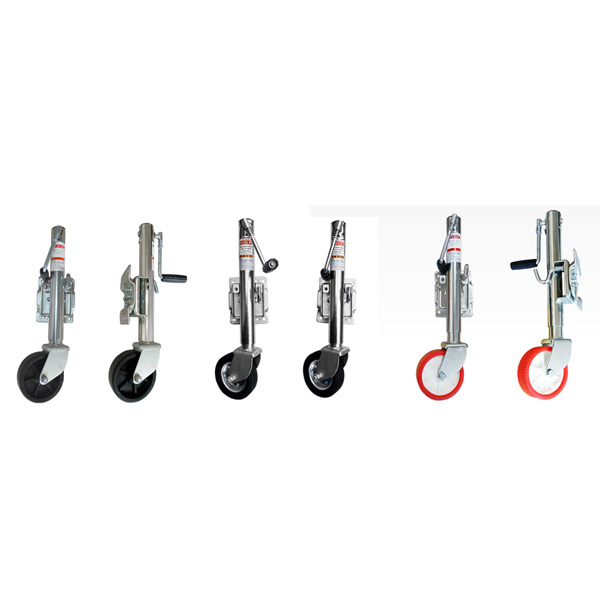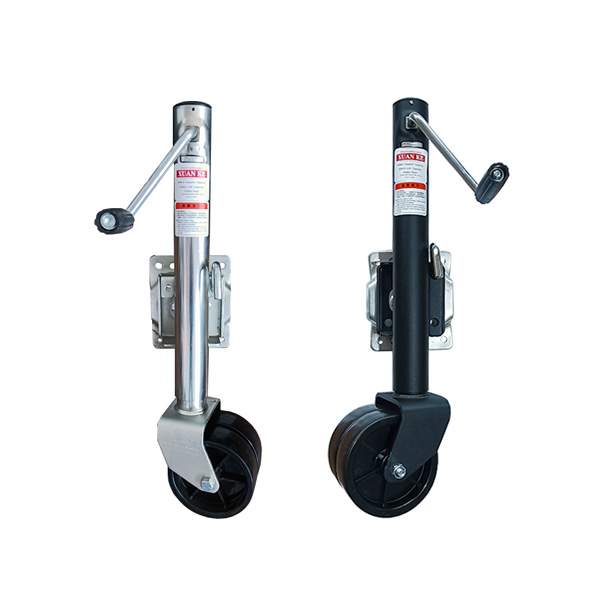
Introduction to Trailer Jacks
Trailer jacks are essential tools for anyone operating trailers, whether for recreational, commercial, or industrial purposes. They providestability, ease of maneuvering, and efficient loading and unloading. Understanding the benefits of using a trailer jack can help operators improve operational efficiency, reduce physical strain, and protect both the trailer and its cargo.


Key Benefits of Trailer Jacks
1. Ease of Hitching and Unhitching
Trailer jacks allow operators to easily lift and lower the trailer tongue, making the process of connecting or disconnecting the trailer to a towing vehicle safer and quicker.
Operational Tip:
· Use a trailer jack with a smooth crank mechanism or hydraulic assist for effortless operation.
2. Enhanced Stability During Loading
When loading or unloading cargo, a trailer jack stabilizes the trailer, preventing tipping or shifting. This ensuressafe handling of heavy or uneven loads.
Operational Tip:
· Position the jack centrally under the tongue to distribute weight evenly.
3. Reduced Physical Strain
Manual lifting of trailer tongues can cause fatigue or injury. A trailer jack minimizes physical effort, allowing operators to handle trailers of various sizes safely.
Operational Tip:
· Choose a trailer jack with appropriate lifting capacity for your trailer type.
4. Improved Maneuverability
Some trailer jacks come withswivel wheels or castors, enabling easy repositioning of trailers in tight spaces without towing the vehicle.
Operational Tip:
· Use swivel jacks for frequent repositioning in storage lots or workshops.
5. Protection of Trailer Components
By stabilizing the trailer and reducing strain on the hitch and coupler, trailer jacks helpprevent damage to critical components, extending the trailer’s lifespan.
Operational Tip:
· Regularly inspect and lubricate the jack mechanism to maintain smooth operation and prevent corrosion.


Types of Trailer Jacks
1. Manual Crank Jacks
· Simple, cost-effective, and reliable.
· Suitable for small to medium trailers.
2. Hydraulic or Electric Jacks
· Ideal for heavy-duty trailers requiring minimal physical effort.
· Faster operation and enhanced convenience.
3. Swivel Jacks with Wheels
· Offer mobility and ease of positioning.
· Useful for boat trailers, RVs, and utility trailers.
Maintenance Tips for Trailer Jacks
· Lubricate Moving Parts: Ensure smooth cranking and reduce wear.
· Check for Rust and Corrosion: Protect the jack with appropriate coatings or covers.
· Inspect Mounting Bolts: Tighten all connections to maintain stability.
· Test Load Capacity: Verify that the jack can safely handle the trailer’s weight.
How Trailer Jacks Improve Operational Efficiency
· Time Savings: Faster hitching, unhitching, and repositioning reduce operational delays.
· Enhanced Safety: Stable trailers prevent accidents during loading and unloading.
· Lower Labor Costs: Reduced physical effort allows operators to handle more trailers with fewer personnel.
· Equipment Longevity: Properly supported trailers reduce wear on hitches, couplers, and tires.
Conclusion: Optimize Trailer Operations with the Right Jack
Investing in a quality trailer jack enhances efficiency, safety, and durability. From easy hitching to stable loading, trailer jacks simplify operations for recreational and commercial users alike. By selecting the right type of jack and maintaining it properly, operators can ensure smooth, safe, and cost-effective trailer management.
Meta Description:
Discover the benefits of trailer jacks for improved trailer operation efficiency. Learn how they enhance stability, maneuverability, safety, and reduce labor effort for recreational and commercial trailers.





